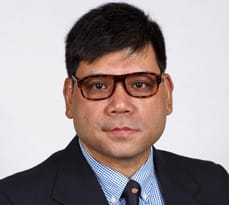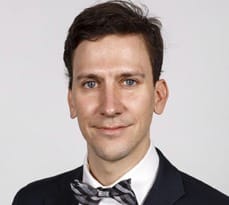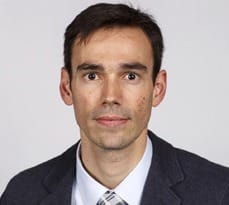Venture founded by three Cambridge Judge Executive MBA students to combat Alzheimer’s disease works with ad agency McCann in the Czech Republic, and signs new agreements for research collaboration.

A venture that seeks solutions for Alzheimer’s disease that was co-founded by three participants in the Executive MBA programme at Cambridge Judge Business School has recently branched out into new areas of corporate social responsibility (CSR).

Aequa Sciences – founded by EMBA students Al Pineda, Jan Ruzicka, Loic Merckel and Czech professor Omar Sery – signed a three-year contract this autumn with the Czech Republic office of global advertising agency McCann to provide CSR campaigns for McCann’s clients. Aequa is based in London and has a laboratory in Brno, Czech Republic.
The campaigns for McCann’s clients will have health promotion themes. Aequa says that one idea being considered would offer customers suffering from an ailment a discount for using the service advertised, and those customers would also receive free predictive testing by Aequa for Alzheimer’s and other multifactorial diseases.
“The idea is to do something meaningful for the customer and something useful for society and for business,” says Jan Binar, CEO of McCann Prague. “It’s a good thing if you can combine doing business and doing good.”
Aequa aims to use neural network technology and big data to calculate the risk of Alzheimer’s in order to provide patients with prevention measures that can prolong healthy life, as there is no cure. An estimated 35.6 million people lived with dementia worldwide in 2010, with numbers expected to nearly double every 20 years.

“The idea is to provide life improvement for our clients by applying AI (artificial intelligence) data plus application of behavioural science so people can change their lifestyles in order to prolong quality of life,” says Binar.
In addition to the agreement with McCann, Aequa in June signed two collaborative research Memorandums of Understanding with parties including University Hospital Motol in Prague, Nanjing Drum Tower Hospital and Shuguang University Hospital in Shanghai. The MOUs were witnessed by Li Bin, the chair of China’s National Health and Family Planning Commission, and the country’s vice premier, Liu Yandong.
The MOUs cover such collaboration as exchanging research data, joint publishing of research results, comparative genetic and neurological studies, and exchanging postgraduate students involved in Alzheimer’s research.
“The beautiful thing about data science and artificial intelligence is that it sees no country barriers and has no boundaries,” says Loic Merckel.

Aequa has assembled a very good database for multifactorial disease in the Czech Republic based on predictive testing involving the population age 40-50 and their children who are susceptible. The venture also has good international contacts, as Jan Ruzicka has worked in the Czech civil service since 2005 including as Director-General of the Ministry of Health.
Going forward, one big challenge for the company is to scale up into other countries, as that requires country-by-country licenses in order to obtain saliva for DNA testing.
“Poland is a big target for us, because Alzheimer’s affects people in Poland a lot owing to the genetics,” says Al. “Scaling up involves introductions to governments, and hiring people, so it’s something we’re focused on going forward.”
This article is part of Venturing Forth, our new series on the aspirations and challenges of ventures connected to students, alumni and others associated with Cambridge Judge Business School.

